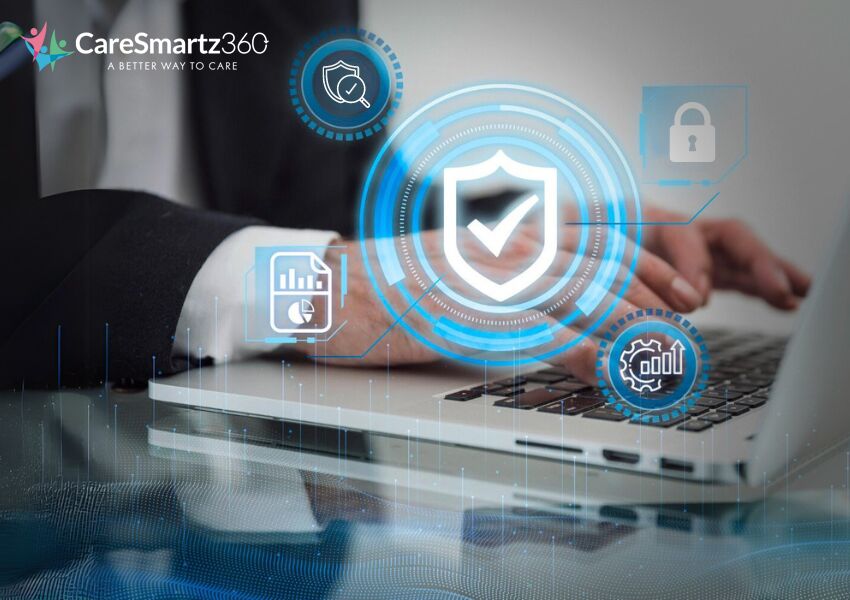
Home care agencies store and process a huge amount of personal data, including sensitive data about a person’s health.
In some cases, personal information viewed even by an authorized user can lead to a data breach. This, in turn, can lead to critical hurdles in client care as they would no longer be willing to share vital information.
It can lead to compromised care delivery and worse still, as the data is out in the public domain, it can put the client’s life in danger!
Besides, the home care business’ reputation is compromised, which affects a client’s trust and confidence in their carers.
Three major aspects make home care cyber security a huge concern. These are:
The data available with an agency must be thorough and accurate.
It is vital because the information shared is generally sensitive enough to tarnish an agency’s reputation.
Data must always be available so there’s a seamless flow of work.
There are regulations in the USA that prioritize home care cybersecurity and privacy for better access, availability, and accountability. The most pertinent one is:
HIPAA compliance is a regulation with a huge user base and impact in the US for home care cybersecurity. HIPAA has mandated all home care agencies to closely follow their privacy practice notices, which should be posted out for the care recipients to be able to review.
Any non-compliance with the regulations and the privacy policies results in HIPAA violation.
There are two components of HIPAA for home care cyber security concerns:
The rule protects personal home care data — clients’ medical records and information regarding personal health — from disclosure to third parties.
The focus is to protect, create, receive, use, and maintain clients’ records via organizations authorized under HIPAA.
Home care agencies that present the following risk factors are at a higher risk of experiencing a data breach:
In these scams, home care workers get emails from those who seem to be authorized users. But in reality, they contain malicious links that compromise caregiver data.
In busy environments like those of home care agencies, caregivers are more likely to open these malicious emails.
Outdated apps and operating systems generally have less dependable security controls than new systems. Thus, home care agencies utilizing outdated apps risk a data breach.
Home care agencies usually employ more staff than other types of agencies. Typically, the more caregivers an agency has, the higher the risk that they will compromise data integrity by:
1. Falling victim to malware schemes
2. Sharing private data with outside parties
3. Stealing data for personal use
In agencies where every caregiver creates their login information, weak passwords pose security risks.
Even a single employee using an easily guessable password can compromise all the data of a home care software in a breach.
Besides malware and viruses, data attacks can also occur due to caregiver carelessness.
Every home care worker, volunteer, and business associate should get proper training to identify and combat security issues within the agency.
Some practices used to manage home care cybersecurity crisis are:
It is vital to understand where the data lies, who holds sway over it, and to differentiate private data from public data.
It will help you better assess the measures to protect distinct data points and chalk out a better trajectory for home care cybersecurity.
Implement suitable surveillance policies for digital tools, accounts, and usage of data and resources.
Segregate and identify which kind of employee gets access to what information. Confidential data must not be accessed by the entire staff.
Efficient management is required to reduce the risk of any potential data loss.
Have a data backup to avoid damages due to cyber fraud and natural and man-made disasters or other operational problems.
Even if data is compromised, a backup ensures safety and smooth functioning.
A cloud-based home care software has this feature, and so using it for your agency will help you go a long way in protecting your stakeholder data.
Your entire home care staff must be trained and made aware of the consequences of inefficiency with any data regarding the organization.
It is crucial if the data they deal with is deemed confidential. The staff should watch for phishing emails, cyberbullying links, etc.
Data security is perhaps the biggest concern in home care, and for a good reason. As technology becomes increasingly integrated into our daily lives, the home care industry is no exception.
While digitalization promises improved care quality, reduced costs, and better communication between providers and clients, it also introduces the risk of a data breach, which can lead to dire consequences, such as jeopardizing a client’s life or tarnishing the agency’s reputation.
To avoid such events, among other measures listed above, home care agencies must adhere to these two principles: follow best data security practices and always ensure regulatory compliance.
Our users reported 95% customer satisfaction in 2024. Schedule a personal walkthrough to see CareSmartz360, home care software in action.